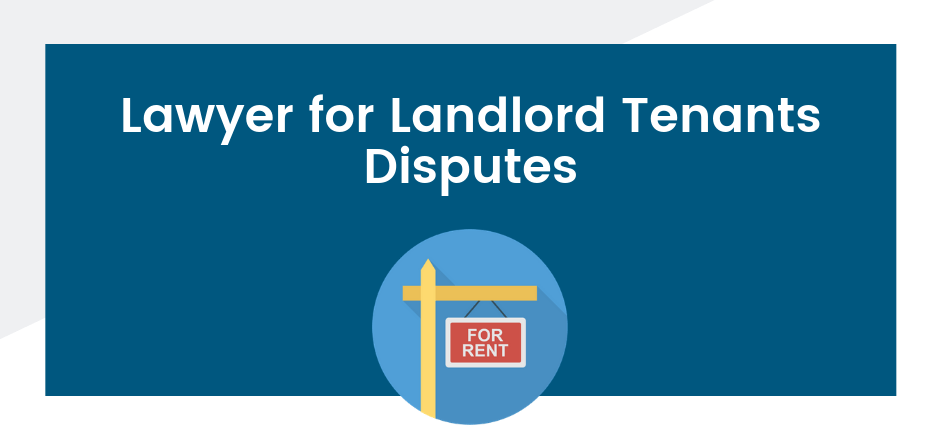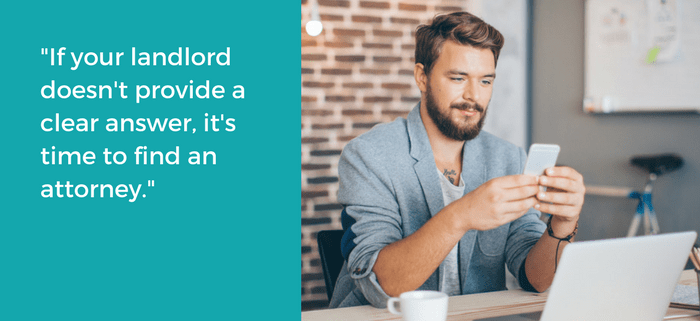Lawyer for Landlord Tenants Dispute: 5 Reasons to File A Claim
If you aren’t able to resolve a dispute with your landlord or tenant, you may need to consider hiring a lawyer for landlord tenants dispute.
Today, we’re taking a closer look at five reasons to hire a lawyer for landlord tenants dispute.

Lawyer for Landlord Tenants Dispute
Are you facing a landlord-tenant dispute?
Most renters sign leases in good faith, and landlords grant leases in good faith. But sometimes things go awry. There are many different scenarios where you as a renter may take issue with some aspect of your lease arrangement.
But sometimes things go awry.
There are many different scenarios where you as a renter may take issue with some aspect of your lease arrangement.
Fortunately, there are attorneys who specialize in real estate landlord tenant disputes.
Is that the answer?
Here are some examples of questions you may be forced to ask your landlord for clarification in a suddenly challenging situation. If your landlord doesn’t provide a clear answer, it’s time to find an attorney.
1. Your Application was Declined without Reason
It is illegal for a landlord to reject your rental application for discriminatory reasons. Federal law prohibits discrimination on such grounds as race, color, religion, national origin, age, sex, physical or mental disability, and even family status (not allowing children or not allowing women who are pregnant).
In addition, state and local laws prohibit discrimination based on marital status or sexual orientation.
There are other laws in effect as well including Federal housing laws. A landlord may not tell you an apartment is not available when, in fact, it is.
A landlord may not use a different set of rules for anyone in one of the protected classes listed above. For example, the landlord may not provide different services or facilities, handle late payments differently, or require a larger deposit.
Your landlord may say no pets allowed. But if you have a service animal like a seeing-eye dog or a dog, or one that helps you move around and is needed due to physical or mental disability, you have a legal right to have that animal live with you regardless of pet limitations. If your landlord objects, he is violating federal law.
You may be rejected due to poor credit from a legitimate credit reporting agency. But if the source is something else, your landlord must tell you the negative rating came from “another source.”
Within 60 days of being given that rating, you can request in writing disclosure of that negative information, and the landlord must respond with the nature of the information – in a reasonable amount of time.
2. Visiting the Property without Notice
Your landlord must give you advance notice before sending any maintenance personnel to your apartment. Similarly, the landlord must give you advance notice before coming into your apartment for any other reason like inspection or to show the apartment to a potential tenant.
The amount of advance notice varies from state to state but is usually 24 hours. Check with your landlord for any written policies considering this topic.
The only exception to the rule for advance notice is in the event of a true emergency like fire or flood – possibly when water pipes burst, etc.
Your lease may require you to report maintenance situations like a leaking refrigerator or plumbing, so you should be aware of any written requirements in your lease to reduce possible charges against your security deposit.
3. Failing to Maintain the Property
A landlord must maintain the habitability of her apartments. She must maintain the premises so they are clean and safe. There should be no holes in the floor or places where someone might trip and fall.
There should be no filth that could become a health hazard. You can watch for peeling paint or other signs that there may be lead present.
Heaters and air conditioners, as well as other appliances, do break from time to time. A heater may break in the dead of winter. The landlord should make repairs as soon as possible to maintain health and safety.
If repairs are not made to maintain adequate living conditions, you have choices. You can move out and stop making rental payments or stay and defend against possible eviction. Either choice has risks; you should consult a real estate attorney before deciding.
4. Breaching the Contract Agreement
Actually, it is legal, as long as the landlord notifies you of the changes. The rules need to be reasonable and fair. They should be clearly stated. If you feel that the changes affect your original lease in some significant way, you should notify your landlord in writing within 30 days.
The landlord should not use the changes to avoid his responsibilities under the law to his tenants.
5. Turning Utilities Off
It is illegal for a landlord to lock out a tenant or turn off her utilities. And before a landlord can evict you, she must go to court. If the landlord does try to evict you illegally, you may be able to collect damages and stay in the apartment or house. If you are given eviction papers, you should get an attorney and respond to the eviction notice within 10 days. If you do not, a magistrate can issue an eviction order.
There are some conditions that would warrant eviction. Committing a crime in the apartment or house is one example. Even being charged with a crime but not yet convicted can lead to eviction. You cannot allow anyone else to use the property for illegal purposes.
But if you are a law-abiding citizen, and you have been paying your rent on time and taking good care of the premises, there is a good chance you should not be evicted. If given such a notice, consult an attorney.
Questions to ask before you sign a lease to keep you out of legal trouble.
- How long is the lease? It could be month-to-month or longer term, like 6 months or more. Make sure you are ready to make the commitment to the lease terms.
- When do payments become late and what is the late fee? You want to make sure that you receive fair treatment (and are treated the same as other tenants). Also, ask when and how payments are made (assuming they are on time).
- Which, if any, utilities are included? Find out if water and electricity are included as well as other energy sources, along with Internet and cable. If these are not covered, be prepared to add to your monthly expenses.
- Are there any other fees required? Check into possible parking costs, storage, use of the pool or other amenities like gym or workout
- What is the process for maintenance requests? Ask about how maintenance is handled – what forms need to be filled out, etc. Ask how emergencies are handled.Also, check on how inspections are handled and how much notice you will be given before a maintenance person will be coming to your apartment.
- You should ask about personal options and restrictions as well. How are you allowed to personalize your apartment – hanging pictures on the walls or installing a satellite dish, etc.? Can you have pets?
- Is there a quiet time? You may get stuck next to neighbors who like to party or stay up late watching TV that might be louder than you like.
- Ask about visitors. Can you have someone stay with you for a few nights if they need to?
Any of these situations can cause you a lot of anxiety and personal distress. There are financial, moral and ethical factors that could affect the outcomes. When faced with these situations, a qualified attorney can help. The best way to find the right one is through a certified local attorney referral service.
Are you in search for a certified attorney to represent you?
Let us help you find one today!




When I agreed to rent a room in the house I currently live, there were so many things not disclosed to me. I even asked questions regarding fleas because at the time 3 other dogs are living in the house. Was told there were no flea problems. Asked if all the dogs were up to date on their vaccinations. Oh, yes, I was told. Still don’t know don’t know. I do know mine is up to date on everything.
After moving in I discovered for myself that the house is infested with not only fleas, cockroaches, mice and rats, and mild. Resently a plumber was called to the house because the washing machine in the garage, kitchen sink is backing up. All room mates were told by one of the room mates (AKA) property manager that a pipe in the foundation of the house is broken, and in order for it we all had to move out for a period of 20 to 25 days. Several roommates are refusing to move out. Thus far nothing has been done the correct the plumbing problem. We’ve been told on several occasions that we can’t use the washing machine and kitchen sink. There are so many more serious problems with this property I could write for hours.